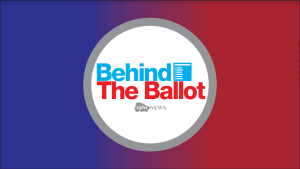The Most Important Meal of the Day
Why Students Choose to Skip Breakfast
Eating breakfast, Junior Scott Marsh sits with his friends in the morning. Marsh regularly eats breakfast from school and said he considers it important for his academic and athletic performance. “Generally, it helps me get through the morning without falling asleep and gives me the protein I need for football,” Marsh said. “It’s much easier for me to pick up breakfast from school since I don’t have much time after arriving on campus.”
November 19, 2021
The Kellog’s-invented phrase that breakfast is the most important meal of the day is one of the most famous pieces of advice regarding the meal. However, this may not always be the case.
Standard wisdom and medical advice from sources such as Rush University and John Hopkins University tell us that eating breakfast comes with a wide variety of health benefits – people who eat breakfast will have more energy throughout the day, improved cognition and a decreased risk of obesity and heart disease. Despite this, rates of breakfast-skipping among teenagers are quite high, with 60% of them not eating the meal each morning according to the University of Minnesota. Among those teenagers is junior Zachariah Dorney, a student who skips for the commonly shared reason of saving time before he arrives at school.
“Skipping breakfast definitely saves a lot of time,” Dorney said. “It’s something I’ve done for a while, but it really picked up last summer when I started to sleep and eat at very late times. Much of the time, I just forget to eat, or I don’t even feel hungry in the morning. I’m completely aware of the health benefits of eating breakfast, but I honestly don’t feel much of a difference between days when I eat and days when I don’t.”
Skipping breakfast was also a habit that teenagers like junior Vishnupriya Gupta lapsed into during online school. Decreased motivation, scheduling differences and less physical and mental exertion attending class on a screen were three factors that led Gupta to skip breakfast and opt to head straight to lunch.
“Since last year, my school started at around 7:30 and I tend to not be hungry that early in the morning, so I would simply skip breakfast and go straight to lunch,” Gupta said. “With this school’s schedule, where lunch is later than the time I would eat it last year, I have to keep a much closer track on my energy levels throughout the day, and that means eating breakfast. I still wouldn’t recommend my routine for anyone going through a similar situation, though. I built up a lot of bad habits as a result of being stuck at home, and I can say that overall I was more tired last year due to those choices.”
Junior Scott Marsh, in contrast, is one teenager who has always eaten breakfast. Since he is a member of the varsity football team, Marsh needs all the energy he can get to perform his best on the field. Still, the junior only has 20 minutes before school to eat a short breakfast from the cafeteria consisting of pre-packaged bagels and eggs.
“Generally, it helps me get through the morning without falling asleep and gives me the protein I need for football,” Marsh said. “It’s much easier for me to pick up breakfast from school since I don’t have much time after arriving on campus.”
On the other hand, junior Trevor Ko plays for the school’s soccer team but skips breakfast despite needing to exert more energy on the field than the average student. He does this in order to conserve time and effort for himself and his parents.
“I started missing breakfast in fifth grade and I’m used to it,” Ko said. “It saves time for both me to not have to eat breakfast and my parents to not cook breakfast for me, and I don’t get to school early enough to eat a meal before my first period starts. I don’t feel any more or less tired because of it.”
Although Dorney and Ko report a minuscule difference in energy between breakfast and non-breakfast days, the two will occasionally compensate for the gap by eating larger portions of food for lunch or bringing snacks in case of an important event where the boost is necessary.
“I will sometimes bring a protein bar to school if I have a soccer game that day,” Ko said. “Or if I just feel hungrier than usual, I’ll get larger portions during lunch or dinner. This is the routine I’ve adapted to in order to save time for all of my homework and extracurricular activities, and I feel that it’s worked effectively.”
School nurse Tarajo Frost, however, is understanding of the rising trend of teenagers skipping breakfast as they grow older. In addition to mentioning eating larger portions during meals, Frost justifies the practice by pointing out another common problem that people face when eating breakfast too early in the morning: indigestion.
“Students, who often wake up around seven or eight for school, tend to complain about indigestion at that time,“ Frost said. “Therefore, the time that most of them are required to wake up is not the optimal time for eating breakfast, as it will oftentimes induce even more nausea and other unpleasant symptoms.”
These were the other reasons that students like junior Madeline Pumphret, a member of the school marching band, cited for skipping breakfast. Even if they did recognize the need to eat it and the tiredness they would experience afterward if they didn’t do so, nausea that would ensue before having breakfast that early meant it was worth it.
“I feel too sick before eating breakfast in the morning,” Pumphret said. “And putting that next to the amount of physical exertion required for marching band, it starts to pile up throughout the day. Eventually, I’ll just feel incredibly tired.”
Therefore, it is not simply about eating or not eating breakfast. According to Frost, students who listen to their body’s dietary needs and adjust accordingly are closer on track towards living a healthier lifestyle.
“What we’ve found over time is our bodies are good at adapting to longer periods of time without food, making for a more efficient digestive system and brain,” Frost said. “I recommend most students to have a snack in their backpack for 10 a.m., when our brains have fully woken up and we’re ready to eat without any side effects. However, other students, such as cross-country runners, wake up early in the morning to practice and are starving by the time they reach 8:30 a.m. Keep track of your health; if you’re dizzy, tired, or performing worse in school, it may be time to start eating. If not, it’s fine to stick with your normal routine.”
Due to time constraints or health issues, a morning routine starting with a full-sized plate of breakfast may not work for everyone. For students who need a little boost in the morning to stay awake for school activities, even a small-sized meal can do the trick. According to ThoughtCo, anything from a cup of yogurt to a piece of fresh fruit to Pop-Tarts are mini-meals that can sustain a student through the day without much effort required, nor will it give them significant side effects. A student not involved in any physical activities is fine bringing a snack to school and eating when they feel hungry, or eating larger portions later on.
“Everybody is different in regards to their dietary needs,” Frost said. “Different people’s bodies will feel different. We always used to say that breakfast is the most important meal of the day, that it was always the proper way to begin your morning. Really, it’s all about keeping track of your own needs.”


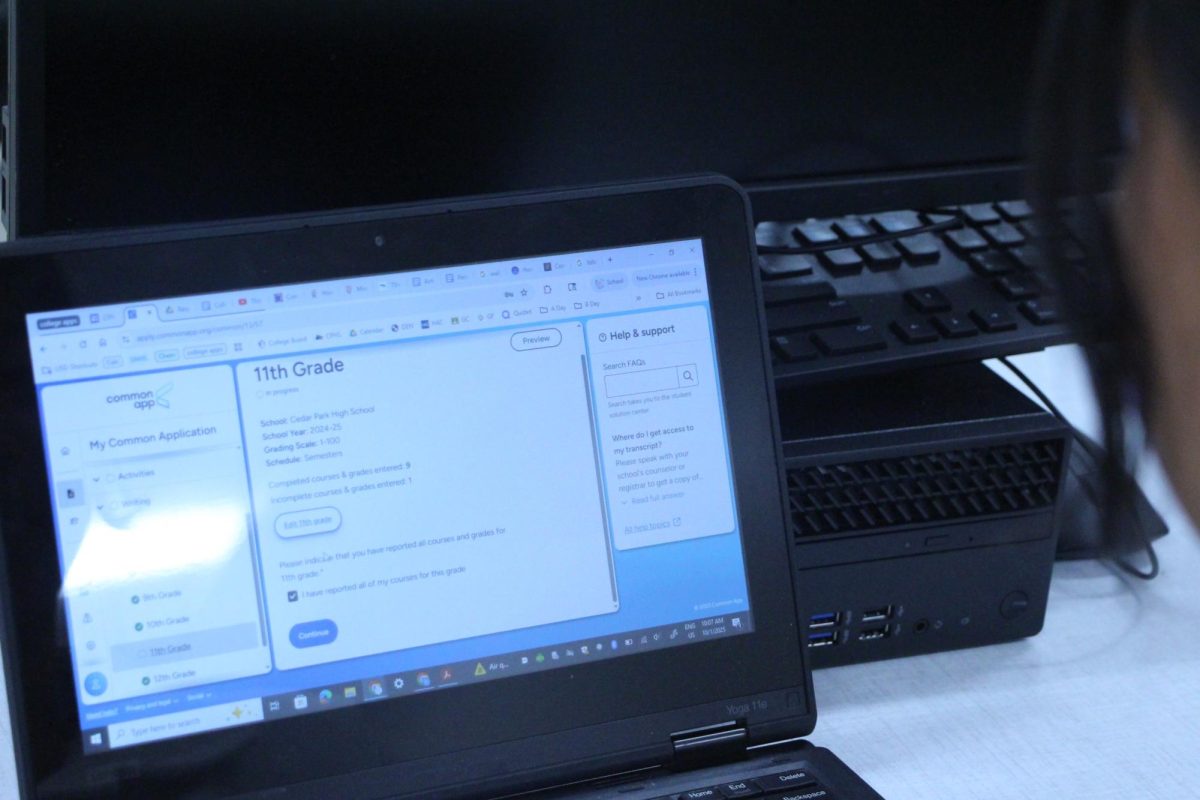




![As her hair blows in the wind, senior Brianna Grandow runs the varsity girls 5K at the cross country district meet last Thursday. Grandow finished fourth in the event and led the varsity girls to regionals with a third place placement as a team. “I’m very excited [to go to regionals],” Grandow said. “I’m excited to race in Corpus Christi, and we get to go to the beach, so that’s really awesome.” Photo by Addison Bruce](https://cphswolfpack.com/wp-content/uploads/2025/10/brianna.jpg)

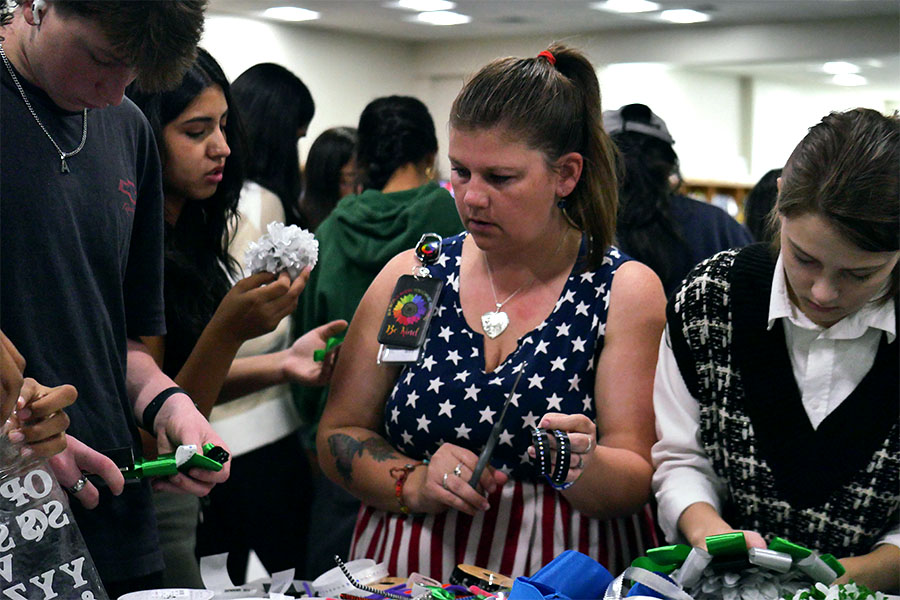
![Broadcast, yearbook and newspaper combined for 66 Interscholastic League Press Conference awards this year. Yearbook won 43, newspaper won 14 and broadcast took home nine. “I think [the ILPC awards] are a great way to give the kids some acknowledgement for all of their hard work,” newspaper and yearbook adviser Paige Hert said. “They typically spend the year covering everyone else’s big moments, so it’s really cool for them to be celebrated so many times and in so many different ways.”](https://cphswolfpack.com/wp-content/uploads/2025/05/edited-ILPC.jpg)





![Sitting with her friend senior Sohpia Struve at last year’s Austin City Limits Festival, senior Ava Zuniga poses for a picture under a pavilion. They are frequent attendees at ACL, an annual music festival at Zilker Park. “I would recommend seeing a bunch of people,” Zuniga said. “This past year, we camped out for Chappell [Roan] for a really long time. I think the whole point of ACL, [which] is a lot of fun, is that you can go see so many different people, even if you don’t know them. So by camping by one person, it really limits yourself from being able to go see a bunch of people.” Photo courtesy of Ava Zuniga](https://cphswolfpack.com/wp-content/uploads/2025/10/EE9E9484-FE6F-4AA0-B5F5-0C177AB32841-1200x857.jpeg)
![Looking down at his racket, junior Hasun Nguyen hits the green tennis ball. Hasun has played tennis since he was 9 years old, and he is on the varsity team. "I feel like it’s not really appreciated in America as much, but [tennis] is a really competitive and mentally challenging sport,” Nguyen said. “I’m really level-headed and can keep my cool during a match, and that helps me play a bit better under pressure.” Photo by Kyra Cox](https://cphswolfpack.com/wp-content/uploads/2025/09/hasun.jpg)

![Bringing her arm over her head and taking a quick breath, junior Lauren Lucas swims the final laps of the 500 freestyle at the regionals swimming competition on date. Lucas broke the school’s 18-year-old record for the 500 freestyle at regionals and again at state with a time of 4:58.63. “I’d had my eye on that 500 record since my freshman year, so I was really excited to see if I could get it at regionals or districts,” Lucas said. “ State is always a really fun experience and medaling for the first time was really great. It was a very very tight race, [so] I was a bit surprised [that I medaled]. [There were] a lot of fast girls at the meet in general, [and] it was like a dogfight back and forth, back and forth.” Photo by Kaydence Wilkinson](https://cphswolfpack.com/wp-content/uploads/2025/03/Kaydence-2.7-23-edit-2.jpg)
![As the support team sits and poses for a photo in the cafeteria with the counseling team they eagerly wait to start their day. "We [all] seem to be a team, I get up every day and there's days where I don't want to go to work today, but I'm thankful that I have a job and I'm blessed to have what I have," Christopherson said. Photo Courtesy of Julie Weltens.](https://cphswolfpack.com/wp-content/uploads/2025/01/AF9E8470-10D7-4C91-BF28-EC8F86BAB66C-1200x852.jpeg)
![Jumping off the ground, senior linebacker Bennett Patton snatches the ball out of the air for an interception at Thursday’s game against Chaparral. Patton had two interceptions in the 56-14 victory, tying the school record for interceptions in a game. “I was just playing the game,” Patton said. “[I’m] going to go into next week, forget about it and stay humble.” Photo by Harper Chapman](https://cphswolfpack.com/wp-content/uploads/2025/09/bennett-interception.jpg)














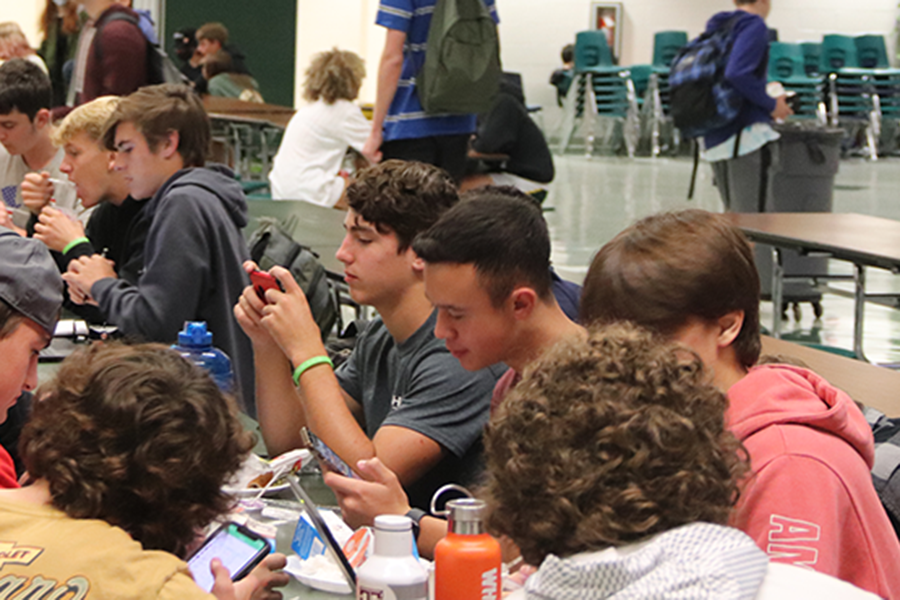

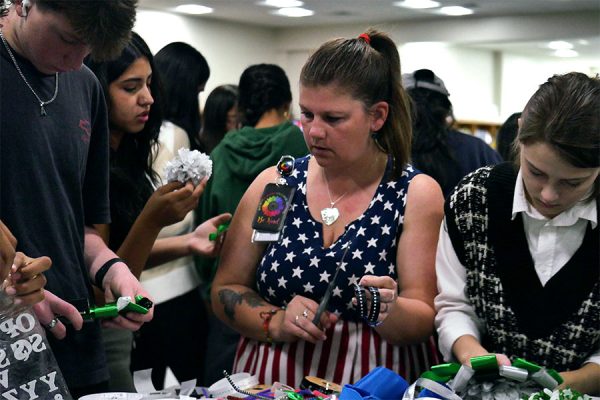
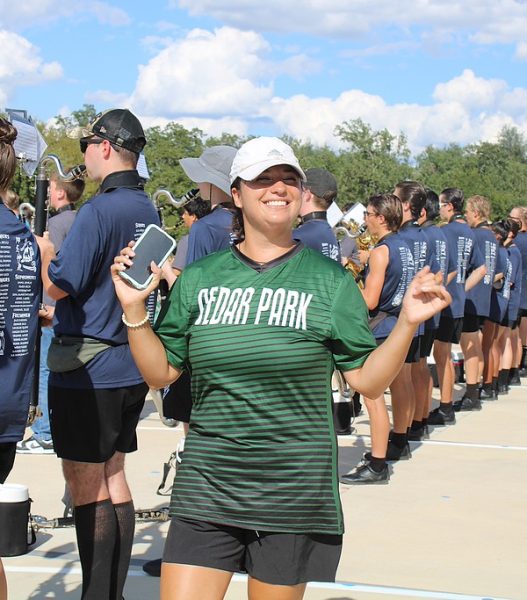

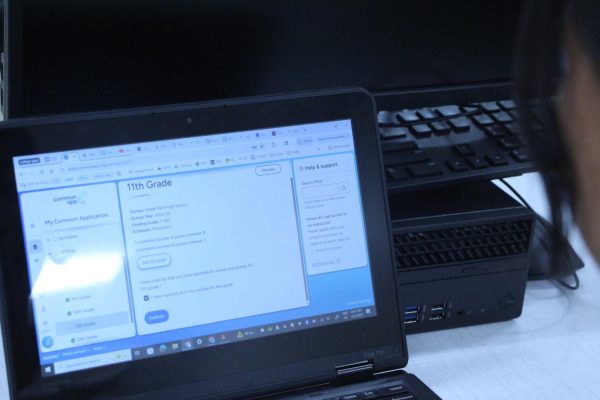






![The fire department came to the school after students were evacuated when smoke started coming from the ceiling of a classroom. All students and staff are safe. “All of my friends left their stuff too, so we couldn’t contact our parents, and it was stressful,” senior Brynn Fowler said. “It was scary because I didn’t know [what was going on], and I couldn’t find anyone because it was a big crowd.” Photo by Anthony Garcia](https://cphswolfpack.com/wp-content/uploads/2025/09/firetruck-300x200.jpg)

